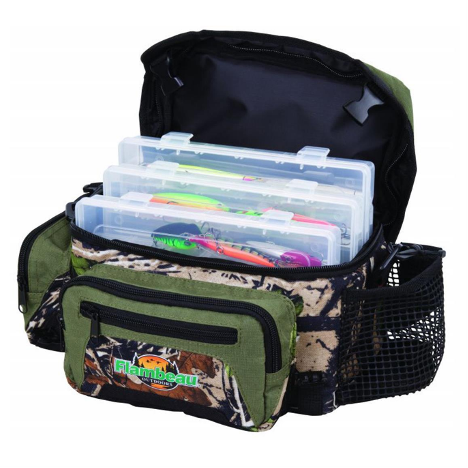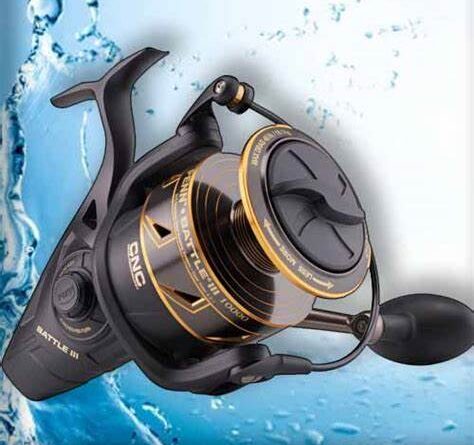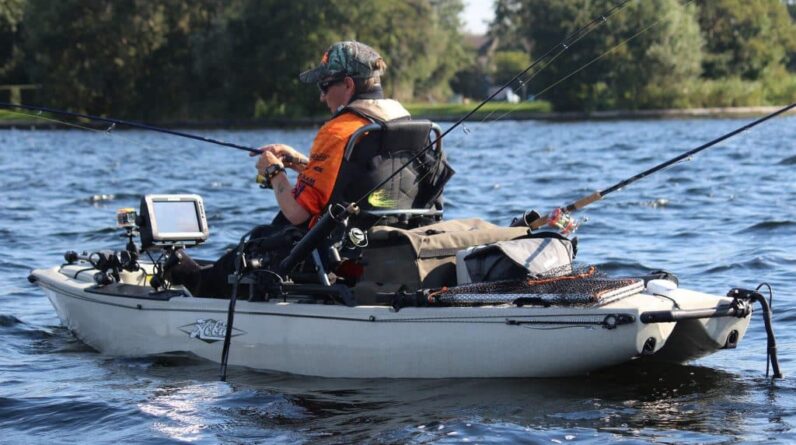At Cheerfulfisherman.com, we’ll assist anglers, whether you’re a pro or just starting out, in picking the right tackle box. The decision between a hard tackle box and a soft one can greatly affect your fishing adventure. In this article, we’ll break down the pros and cons of each to help you make the right choice.
Hard Tackle Box
Hard tackle boxes are the traditional choice for anglers and have been around for decades. These boxes are typically made of durable materials such as plastic or metal, providing excellent protection for your fishing gear. Here are some key advantages and disadvantages of using a hard tackle box:
Advantages of Hard Tackle Box
Durability: Hard tackle boxes are known for their sturdiness and durability. They can withstand rough handling and protect your gear from impacts, making them ideal for anglers who travel to different fishing spots.
Organization: Most hard tackle boxes come with dividers, trays, and compartments, allowing you to organize your lures, baits, hooks, and other fishing essentials neatly. This makes it easier to find what you need quickly, saving you time on the water.
Waterproof: Many hard tackle boxes are designed to be waterproof or at least water-resistant. This feature ensures that your tackle remains dry and rust-free even in wet conditions.
Security: Hard tackle boxes often come with locking mechanisms, which can deter theft or keep curious hands away from your valuable fishing equipment.
Longevity: When well-maintained, a hard tackle box can last for many years, providing good value for your investment.
Disadvantages of Hard Tackle Box
Weight and Bulk: Hard tackle boxes tend to be heavier and bulkier than soft tackle boxes, which can be cumbersome to carry, especially for anglers who prefer to hike or travel long distances to their fishing locations.
Limited Flexibility: The rigid structure of hard tackle boxes doesn’t allow for much flexibility when you need to fit them into tight spaces, like the back of a kayak or a small boat.
Soft Tackle Box

Soft tackle boxes, also known as tackle bags or tackle backpacks, have gained popularity among anglers in recent years. These flexible and lightweight storage solutions have their unique set of advantages and disadvantages.
Advantages of Soft Tackle Box
Portability: Soft tackle boxes are typically lighter and more portable than their hard counterparts. They are easy to carry on long fishing trips, hikes, or when wading in the water.
Versatility: Many soft tackle boxes offer various compartments and removable trays, giving you the flexibility to customize the storage space to your specific needs.
Space Efficiency: Soft tackle boxes can fit into smaller spaces, making them suitable for anglers with limited storage space in their boats or vehicles.
Comfort: Tackle bags and backpacks are designed for comfort, with padded straps and ergonomic designs, allowing anglers to carry their gear for extended periods without discomfort.
Accessibility: Soft tackle boxes typically have multiple pockets and zippered compartments, making it easy to access and organize your fishing gear. They are especially useful for quick lure changes and easy access to your essential items.
Disadvantages of Soft Tackle Box
Less Protection: Soft tackle boxes provide less protection from impact and the elements compared to hard tackle boxes. They are not as suitable for anglers who engage in rugged or off-road fishing activities.
Limited Security: While some soft tackle boxes have locking options, they are generally not as secure as hard tackle boxes, which can be a concern for anglers worried about theft.
Lifespan: Soft tackle boxes may not last as long as hard tackle boxes, particularly if exposed to harsh weather conditions or constant wear and tear.
Choosing the Right Tackle Box for You
The choice between a hard tackle box and a soft tackle box largely depends on your fishing style and personal preferences. Here are some factors to consider when making your decision:
Fishing Environment: Consider where you will be fishing. If you frequently encounter rough conditions or need maximum gear protection, a hard tackle box may be the better choice. For more casual or freshwater anglers, a soft tackle box might be sufficient.
Mobility: Think about how you’ll transport your gear. If you’re hiking to fishing spots or traveling long distances, the portability of a soft tackle box may be appealing.
Organization: Assess your need for organization and easy access. If you require meticulous organization and quick access to your gear, a tackle bag with multiple pockets and compartments might be the better option.
Budget: Your budget may also influence your decision. Soft tackle boxes are generally more affordable, while hard tackle boxes can be a larger upfront investment.
Security: If theft is a concern, consider a hard tackle box with locking mechanisms to secure your valuable equipment.
When faced with the decision between a hard tackle box and a soft tackle box, it’s essential to understand that there is no universally superior option. Each type has its unique advantages and disadvantages, and the best choice for you depends on your specific fishing needs and personal preferences.
Hard tackle boxes are known for their durability and robust construction. They provide excellent protection for your fishing gear, keeping it safe from rough handling and the elements. These boxes typically have compartments and trays that make organizing and accessing your tackle quite convenient. However, they can be heavy and cumbersome, making them less suitable for anglers who prefer to travel light or hike to remote fishing spots.
On the other hand, soft tackle boxes, often in the form of tackle bags, are prized for their portability and versatility. They are lighter and easier to carry, making them an ideal choice for anglers who are constantly on the move. Soft tackle boxes offer a bit more flexibility in terms of storage because they often have adjustable compartments. However, they may not provide as much protection for your gear as hard boxes, especially in harsh weather conditions.
Some seasoned anglers even opt for a combination of both types. They use hard tackle boxes for storing their more delicate or essential items that require extra protection, and they complement this with a soft tackle box for additional storage and ease of transportation. This hybrid approach allows them to reap the benefits of both options depending on the fishing situation.
Ultimately, the correct tackle box for you is the one that enhances your overall fishing experience. It should keep your gear organized and readily accessible, ensuring you have the right tools and equipment when you need them most. If you are just beginning your journey into the world of fishing, we recommend visiting our beginner’s guide, where you can find more detailed information about tackle boxes and essential fishing gear. This resource will help you make an informed decision about the tackle box that suits your needs and preferences as you embark on your fishing adventures.






